13 Healthy Foods That Aren’t as Low-Calorie as We Think
Proper nutrition has long found its place in popular blogs and consumers’ minds as a path to a healthy lifestyle. Many people associate proper nutrition with a balanced diet, which leads to weight loss. However, they are often not the same.
At 5-Minute Crafts, we believe that our diet should be diverse and reasonable, and we decided to find out which foods that are labeled as healthy should be consumed in limited quantities.
13. Yogurt
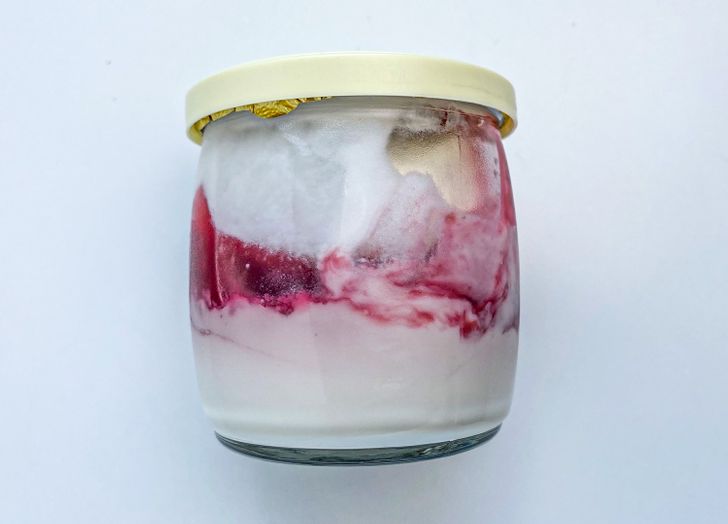
🔷 Non-fat fruit yogurt contains 95 kcal per 100 g.
🔷 Greek yogurt with blueberry has 82 kcal per 100 g.
🔷 Low-fat Greek yogurt with strawberry contains 105 kcal per 100 g.
Usually, a yogurt jar has approximately 200 g of the product. Despite the fact that you will hardly satisfy your hunger with just one jar, the energy value of sweet fruit yogurt can be quite high.
12. Red salmon
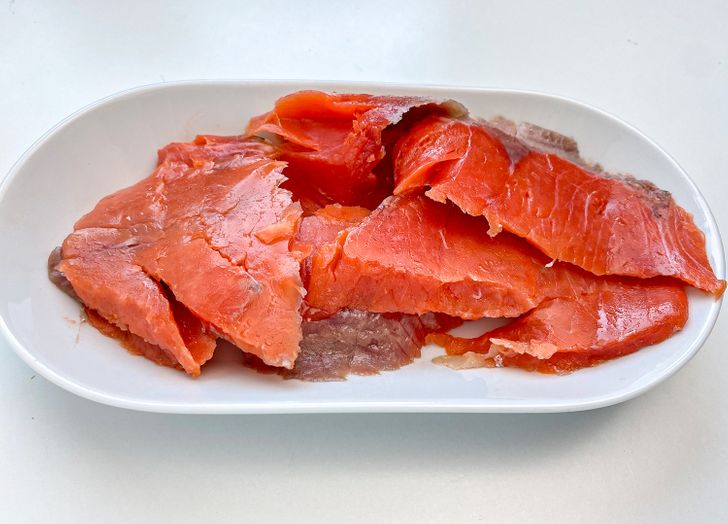
🔷 Raw red salmon contains 131 kcal per 100 g.
🔷 Smoked red salmon contains 117 kcal per 100 g.
It’s widely believed that seafood contains many nutrients (and this is true). It really has fewer calories than meat, so it’s often recommended to eat fish and seafood to replenish protein in the body without gaining extra weight. Fish contains healthy omega-3 fatty acids, many vitamins, and minerals. But you should keep in mind that, unlike low-fat seafood, like cod, flounder, or red fish, things like red salmon actually contain more fat, and therefore has a higher energy value.
11. Avocado
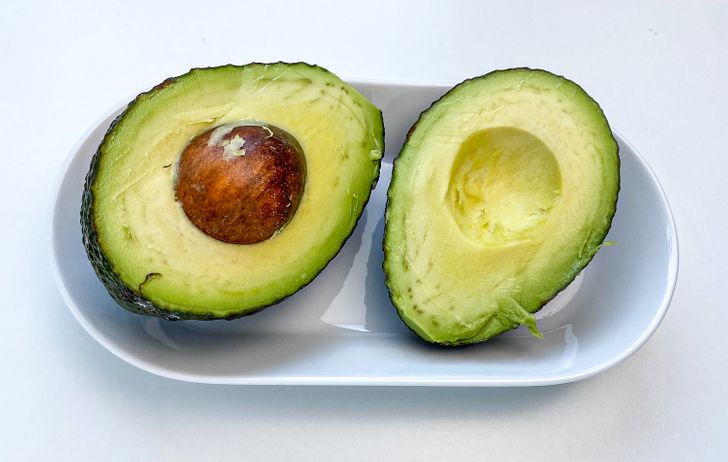
🔷 Avocado contains 160 kcal per 100 g.
🔷 It contains B group vitamins, as well as C, E, K, magnesium, potassium, iron, and zinc.
🔷 Healthy fats help you feel satiated. In general, the consumption of avocado is good for health.
It’s worth mentioning that avocado is a healthy fruit. Yes, it is a fruit, despite the fact that we are used to buying it in the vegetable section. It can even be called a berry because it has a pit and a soft shell. You should not exclude avocados from your diet. And of course, avocado is a better option than a sandwich spread, like butter (717 kcal per 100 g). On the other hand, a medium-sized avocado weighs 150 g and contains 240 kcal, and a large one can reach up 300 g (480 kcal), so if you want to сontrol your weight, you need to add avocados to your diet only in small portions and after careful calculation.
10. Prunes
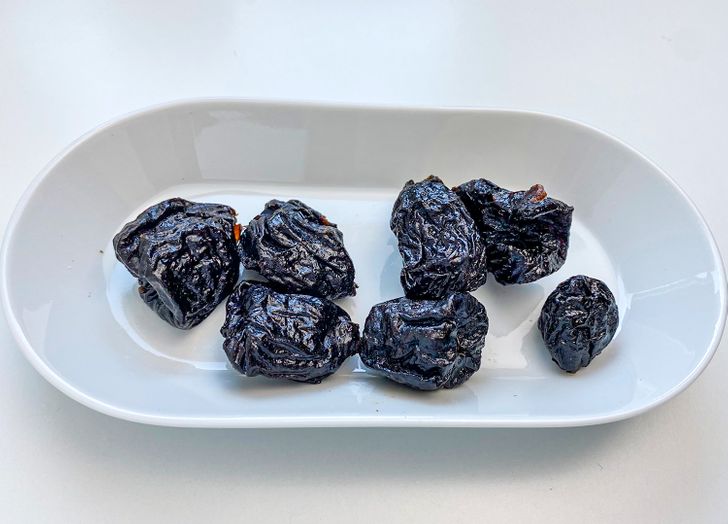
🔷 Prunes contain 240 kcal per 100 g.
🔷 Prunes contain many vitamins: А, С, К, Е, B6. It’s also rich in manganese, copper, iron, and potassium.
According to studies, prunes are good for your digestive system if you eat 100 g of them a day. Just don’t forget to take these calories into account when planning your daily diet.
9. Whole wheat bread
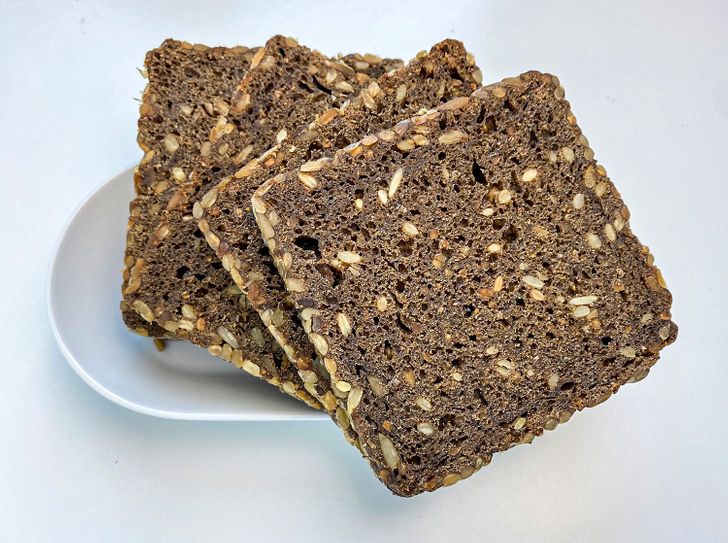
🔷 Whole-wheat bread contains 252 kcal. Its energy value can differ depending on the bread’s recipe, but either way, it’s rather high. Plus, if the bread is dense and moist, one piece of it can replace half of your meal in calories.
🔷 Despite its high energy value, whole wheat bread is really healthy. It contains complex carbs that keep you full for longer. Additionally, whole wheat is a source of plant protein.
🔷 The majority of wheat bread options contain a small amount of iron, potassium, and B group vitamins, thiamine, riboflavin, niacin, and folic acid.
When choosing between whole-wheat bread and regular kinds, it’s better to go for the former, but it doesn’t mean that you can eat it without limitations.
8. Crispbread
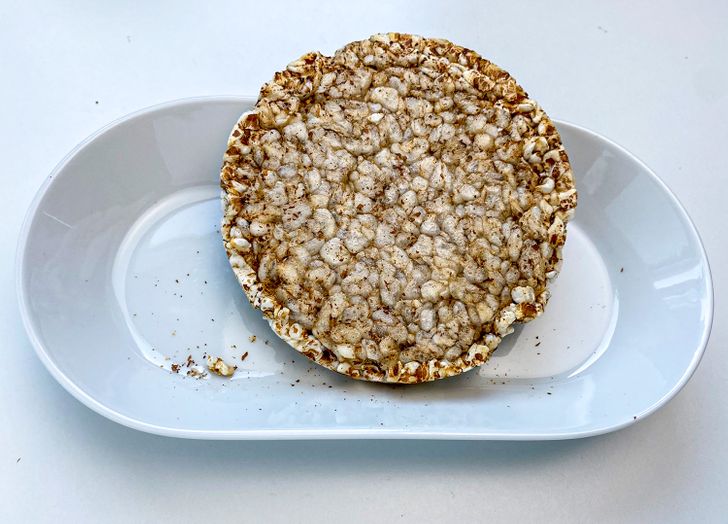
🔷 Rye crispbread contains 366 kcal per 100 g.
🔷 Rice crispbread contains 310 kcal per 100 g.
🔷 Whole wheat crispbread is healthier than bread because it contains a lot of fiber that takes longer to digest. This means that you won’t feel hungry for a longer period of time.
Crispbread improves the work of the digestive system, contains good cholesterol and iron, and positively affects the body. Also, crispbread is lightweight, so it’s easier not to eat too much of it. However, keep in mind that too many carbs can disrupt your daily balance of calories, proteins, and fats.
7. Brown rice
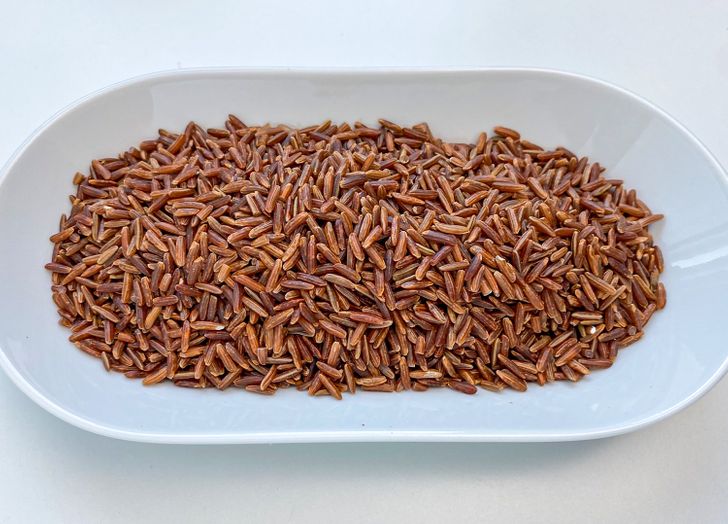
🔷 Brown rice contains 367 kcal per 100 g.
Due to the fact that hulls are not removed from brown rice, it contains substances that are absent in white rice, such as magnesium, phosphorus, selenium, thiamine, niacin, vitamin B6, and manganese, as well as a lot of fiber. Therefore, it’s believed to be more healthy and is presented by marketeers as a dietary product. Nevertheless, brown rice doesn’t differ much from white rice in terms of calorie content. So people who are trying to control their weight shouldn’t eat this food without limitations.
6. Parmesan cheese
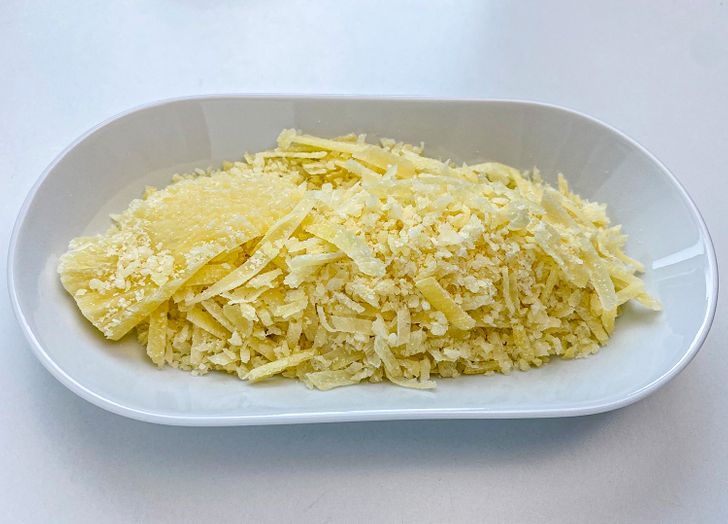
🔷 Parmesan cheese contains 392 kcal per 100 g.
🔷 Parmesan contains a lot of proteins (35.8 g per 100 g), more than mozzarella, cheddar, and Camembert.
It contains a minimal amount of lactose, it’s perfectly digestible, and it contains nutrients, such as calcium, magnesium, phosphorus, and potassium. Plus, Parmesan often contains omega-3. However, due to its high-calorie content, it should be included in a diet in small portions.
5. Granola
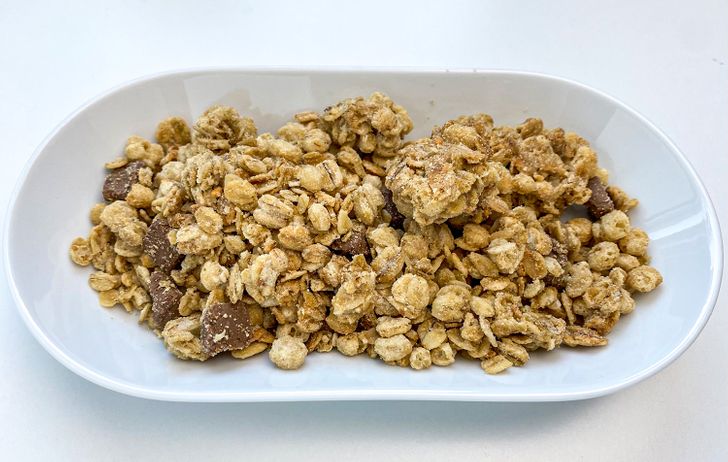
🔷 Homemade granola contains 489 kcal per 100 g.
🔷 It contains a lot of fiber and healthy fats, antioxidants, and vitamin E. Fiber helps you to lose weight and feel satiated for longer.
Granola contains dried fruits, often honey or syrups, nuts, and seeds, so despite all its beneficial properties, its energy value is very high. Additionally, granola is usually eaten with milk, yogurt, ice cream, or juice, which increases its energy value. It can also be eaten with hot water, but this option is not for everybody.
Thus, granola can be included in your diet, but be sure to consider what serving size is right for you.
4. Sweet potato chips
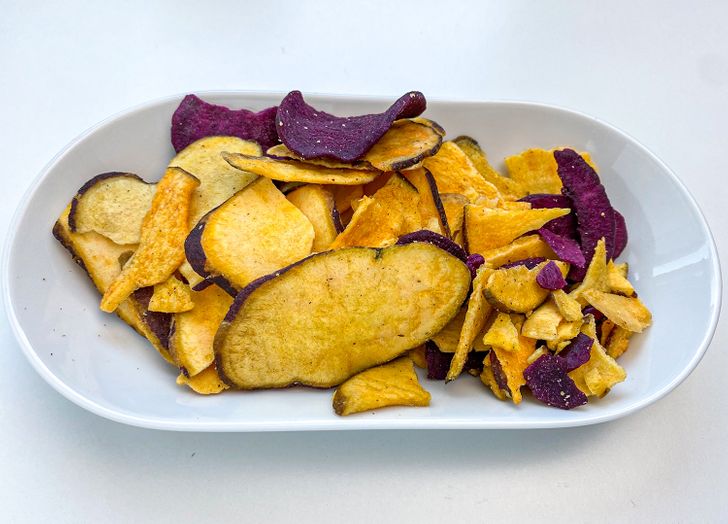
Compared to potato chips, sweet potato chips are believed to be a healthy snack. But In terms of calories, this is not so. As you may know, the energy value of a product varies depending on the cooking method. Since chips are cooked in oil, and moisture is almost completely removed from them, their energy value is increased significantly.
🔷 Sweet potato chips contain 532 kcal per 100 g. So they’re not any better than any other snack, in terms of weight control.
3. Nut butter
2. Nuts
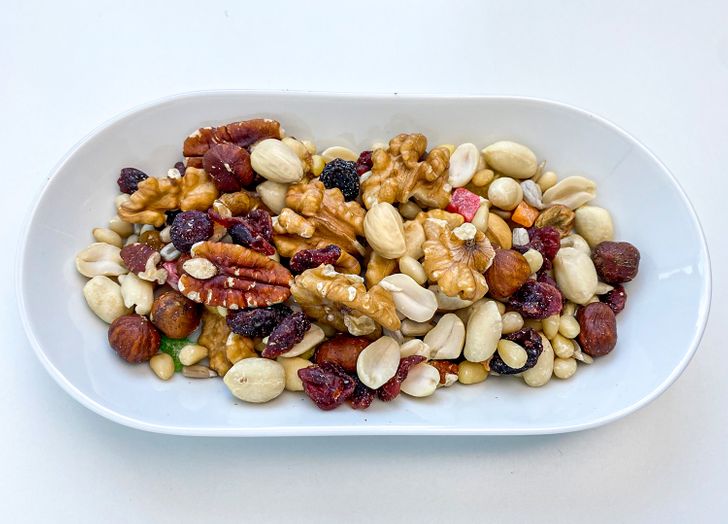
🔷 The nut with the highest energy value is macadamia. It contains 718 kcal per 100 g.
🔷 Pecans contain 691 kcal, and almonds contain 667 kcal per 100 g.
This doesn’t mean that you shouldn’t eat nuts. They are very healthy and are a nice snack that can be an alternative to chips. Nuts contain monounsaturated fats, as well as vitamins, minerals, and antioxidants, which are good for your health.
However, you should eat nuts in small portions since they can affect your weight.
1. Olive and coconut oil
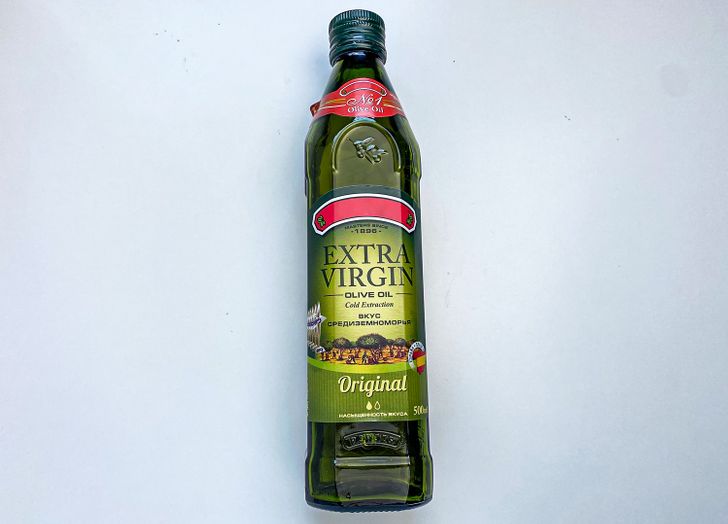
🔷 Olive oil contains 884 kcal per 100 g.
🔷 Coconut oil contains 892 kcal per 100 g.
Like any other plant oil, olive and coconut oils have very high energy values. 1 teaspoon of olive oil contains 44.2 kcal. For comparison, 200 g of tomatoes have the same energy value. And 1 teaspoon is not enough, even for a portion of salad. Thus, you have to control your intake of vegetable oil, even if it’s really healthy.